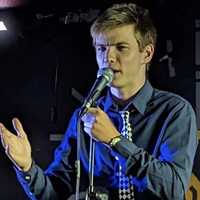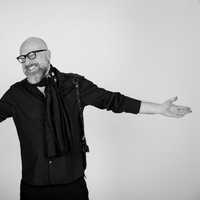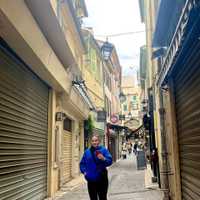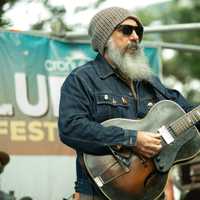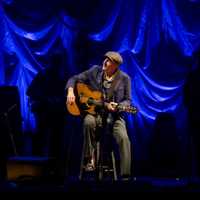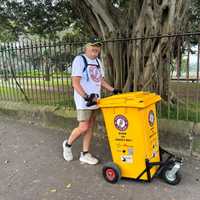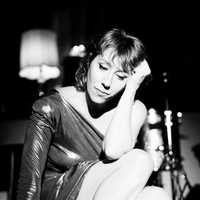Violist and Finalist for the Freedman Classical Fellowship Katie Yap Discusses Her Experience with Music, Baroque Ensembles, Her Concerns for the Environment, and More.
How did you first get interested in music and select the viola as your instrument of choice?
I think I’ve always been interested in music – there’s a family story about me in utero, when my parents went to a Bach B minor mass. Apparently I was throwing myself around so much Mum could barely sit still! I guess that gives you a hint of the kind of music I ended up liking the most – moody baroque.
Instrumentally, I started off as many violists do, playing the violin. I was lucky enough to be a kid in a Queensland state school in the 90s, so I was a beneficiary of their amazing music education program, where every child gets to learn an instrument. When I was in year 9, I had the chance to start the viola. It was a rather utilitarian beginning (I was told I would get into the top orchestra at school if I played the viola, but might not if I just played violin!), but as soon as I got to play chamber music, I knew I had found my voice. I’ve always loved making up harmonies, and suddenly I had come home playing the viola in string quartets!
The viola has an unusual voice – it’s rarely heard as a solo instrument, and is sometimes seen as the ‘failed violinist’s instrument’ (a perspective that I guess my story unfortunately helps perpetuate!) It’s often seen as less virtuosic than the violin or the cello, something of a middle child of the string family. It’s harder to get a sound out of the thing, and it doesn’t speak with the same ease that a violin does. It’s actually acoustically similar to our cool big brother, the double bass in that the body of the instrument is too small for its pitch range. But that gives it an ‘imperfect’ quality that I think is really human, that we need to hear in a world flooded with highly produced, perfected sounds. It’s a small step from there to the even huskier tone of the baroque viola, which is the instrument that I’ll be playing in the Freedman Fellowship final.
As a young musician you have already worked with some of this country’s leading baroque ensembles. Tell us about that experience:
I’ve been very lucky to have had some pretty incredible opportunities come my way, especially since starting to play the baroque viola. The early music scene in Australia is a beautiful one – it’s relatively young, compared with its European counterparts, and it’s incredibly open. Its leaders welcome players from the standard classical world with warmth and generosity, and it was an absolute dream to take my first tentative steps as a baroque musician in that environment. Since my first early music gig playing Boccherini and Haydn quartets with one of Australia’s most established historically informed chamber ensembles, Ironwood, I’ve been fortunate enough to play with groups like the Australian Brandenburg Orchestra, Van Diemen’s Band, and the Australian Romantic and Classical Orchestra. They’re all ensembles of an extremely high calibre, and I learn new things every time I play with them. I suppose it’s partly by virtue of ensemble sizes being smaller, but I’ve noticed that communication between players, conductor and audience in early music ensembles is something really special – there’s an emphasis on spontaneity, so that means that everyone’s constantly connected in a network that goes between every single person.
Tell us briefly about your proposal exploring the theme of ‘Home’ that you have mind should you win the Fellowship:
My project’s theme of ‘Home’ has three major elements: the first of which is to explore the baroque viola’s musical home, and broaden its perception. As I mentioned, the viola isn’t often heard as a solo voice – much less so its baroque counterpart! For me, the baroque viola is my musical home, with its subtle and emotional virtuosity, rather than the flashy brilliance of a violin. So I want to help champion it through creating a concert program that demonstrates its beauty and its versatility. The program is for baroque string trio, and spans 500 years of music, crossing over from classical to folk, from Palestrina to traditional Scottish and Australian music, to a new commission from Melbourne-based composer Matt Laing.
Through that program, I want to explore the different ideas of home that are inherent in different types of music: the religious home of Palestrina and Bach, the locational home of composers who travelled like Handel and Boccherini, the community-based home of folk music, Australia as home through Paul Stanhope’s works, and finally, the environment and our world as home with Matt Laing’s commission. I hope that through this program, my audience will ponder on what their home is, and to perhaps help strengthen relationships between people, their communities, and their landscapes.
The final part of my project is to expand my own performing home. I’ve toured through almost every state and territory of Australia, and it’s helped me understand and love my land more than I could ever have dreamed. I’ll take my program on a 12-concert tour of the eastern coast of Australia, from my current home of Melbourne to where I was born in Brisbane, and extending up to Cairns. Then, after recording that program to release as an album, I’ll take a similar program to Italy to play with some incredible Italian musicians who I’ve been fortunate enough to work with previously – the baroque violinist and improviser Davide Monti and baroque harpist and scholar Dr. Maria Cleary.
How does your sense of country and concern for the environment play a part in your music?
As a classical musician, I’m always conscious of both how wonderful and how difficult our Australian remoteness makes life as a musician. I think Australian musicians can have incredible freedom to do something unique and personal, that isn’t as easy to do in places like Europe where the culture has so much more history. So much of Australian classical music evokes our bush – and the bush is one of the places I feel most at home.
I’ve had a great concern for our natural environment since I was in year 6, and my classroom teacher told us about deforestation – I started a recycling club, because I was definitely one of the cool kids (we made paper out of old paper, it was great). I’ve become increasingly distressed at how quickly we’re seeing our natural world degrade and disappear, and I’ve struggled a long time with how my life as a touring musician contributes to that degradation – particularly as an Australian musician, where our distances are so vast. With this opportunity with the Freedman Fellowship, I saw the possibility to turn that around and use my voice as a musician to speak out and use my music to help change, and mend, and connect. I believe that climate change is a terribly pressing issue, but that the conversation surrounding it has become far too polarized and divisive. I hope to use my music to allow people who might feel alienated by that conversation back in, and to foster connections in a diverse audience. Words have divided us, but music’s power is in speaking without words, and through that, I hope we can begin to work alongside each other again.

Share "Interview with Freedman Classical Finalist Katie Yap"
Copy

